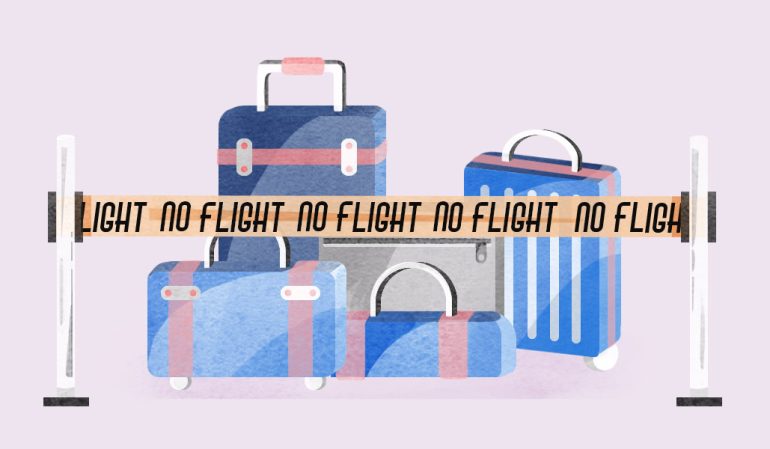Business traveling is up, but not everyone has the chance to do so. According to the results of SAP Concur’s annual global business travel survey, two-thirds of employees believe business travel is essential for professional development, but as many claim they have n’t had the same chance as their coworkers when it comes to business travel. WorkLife earlier discussed how crucial worldwide travel is for professional development and learning opportunities. ” It’s not something that is a wonderful to have”, Anna Potter, Continental’s head of international mobility services, the Americas gateway, told us. ” It’s a you- have- to- possess- it. If you do n’t have global experience, you ca n’t really be an effective global leader. According to SAP Concur’s record, there will be a limit to how many people perceive their associates as having an equal opportunity to travel for business. This is evidence that these thoughts are n’t abating. What prevents some people from getting a chance to travel, then? This opportunity disparity is attributed to their level of seniority ( 19 % ), their age ( 18 % ), their status as a parent or caretaker ( 14 % ), their physical appearance ( 12 % ), and how frequently they enter the office ( 12 % ), according to the survey of nearly 4, 000 business travelers in 24 markets. And certain factors are substantially more of a element for women than men, like age, status as a family, and sex. More men say they’ve never felt that they did n’t have equal opportunity for business travel ( 38 % vs. 29 % ). ” I think for younger people especially, business travel is an option both for life advancement and job development”, said Jen Moyse, director of goods and nose of UX at SAP Concur. ” To find files in which a bunch of tourists, not just by time, feel they may be held back from that kind of improvement is disheartening”. ” To find data in which a lot of travelers, not just by age, feel they may be held back from that kind of advancement is disheartening”.Additionally, more LGBTQ+ business travelers feel they have n’t had equal opportunity because of their physical appearance ( 20 % vs. 12 % of the general population ), disability ( 14 % vs. 8 % ), and sexual orientation ( 20 % vs. 7 % ). Additionally, according to a recent survey from the World Travel Protection, the majority of business travelers ( 64 % ) express concern about visiting a region that is perceived as biased against or criminalizing those who identify as LGBTQ+. This research, which surveyed 1, 000 business travelers, also found that relatively few employees ( 15 % ) reported that their company provides information on LGBTQIA + rights in the countries they are visiting. ” It’s preparing those guests to know where they’re going, the threats they face, and then provide some basic advice and tools to support them to make informed options”, said Frank Harrison, regional safety director, Americas at World Travel Protection. What does businesses do, both for business go and beyond, to accommodate LGBTQ+ participation? Moyse says that the first step is knowledge. ” First and foremost, communicate with your staff and ask them how do they think about the company’s business go plans”, said Moyse. Do they think as though they have the same opportunities as their employees? If no, why? They can communicate with their Human teams about these office issues.” Businesses can also use the assistance of organizations like World Travel Protection, which provides advice to plurality groups for additional vacation support to ensure security, and beyond so that groups traveling along can look out for one another. Harrison remarked,” We approach it from the point of educating the businesses we work for all of your employees with the same information.” ” If they’re going into a risk environment, support them in making their own choice. Conversely, organizations must understand that they ca n’t take punitive action against people who claim they do n’t want to go because they feel safe. Organizations must understand that they ca n’t take punitive action against people who have concerns about personal safety if someone says they do n’t want to go because they do n’t feel safe. There are other ways to ensure equal opportunity for business travelers as well. For example, GrowthScribe, a company that helps businesses increase revenue through automation, finance, and marketing acumen, has occasional anonymous application opportunities. According to Kartik Ahuja, founder and CEO, anonymous application allows candidates to be chosen solely based on the merits of their applications and reduces bias. ” This, in turn, promotes healthy competition and motivates everyone to contribute better”, said Ahuja. Each employee therefore has a good chance of getting a chance to travel on business. The company also runs a rotational shadow program where employees accompany managers and other senior leaders on business trips to learn and gain experience without having to assume full responsibility. ” Through this approach, they get hands- on experience managing various aspects of work such as preparing reports, conducting research, and understanding the intricacies of handling complex projects and large teams”, said Ahuja.

















































